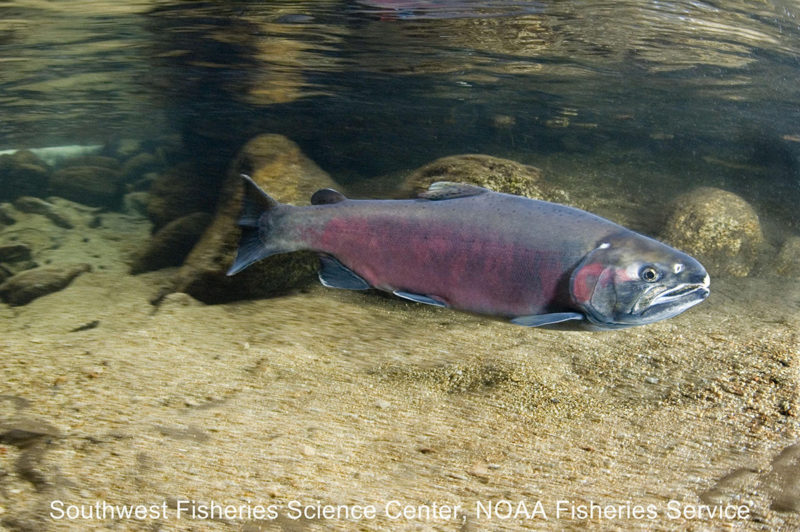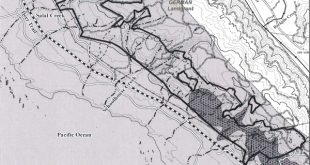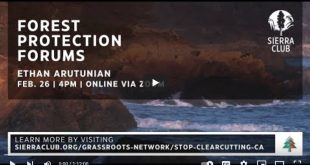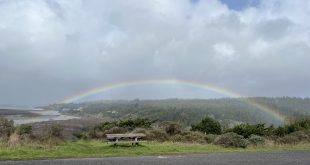After years of trying, and succeeding, to stop the Timber Harvest Plan (THP) called “Dogwood,” the fight was lost this past week.
Those of us who have put so much effort into stopping this terrible logging plan are so very disheartened by this. We mourn the loss of the Redwood trees, the damage to the floodplain of the river, and the harm that may have come to animals and plants because of the logging and hauling out of the now-dead trees.
We, like many of you, love and care about the “Magical Forest.” In a fair and decent world, this THP wouldn’t have happened. But it did. We lost this fight.
Friends of Gualala River (FoGR) could not have taken on this major effort without tremendous support from our members and generous donors and we are forever grateful.
We at FoGR will continue our efforts to stop the desecration of the river and watershed. We are challenging in court the actions – or inactions – of the Regional and State Water Boards, which oversee issues such as sedimentation in rivers. The Gualala River has no Basin Plan. We at FoGR are asking why not.
There are three more terrible THPs, in the North Fork and Little North Fork of the river, which we are determined to fight. These areas are the last refuge of the endangered fish.
So we pick ourselves up, dry our tears, and move on to the next challenge. But we will never forget what happened this past week to the “Magical Forest.”
Jeanne Jackson, Treasurer, FoGR
(on behalf of FoGR Board of Directors)
Below was written by Peter Baye. It’s an accounting of what went on in
Federal Court last week, which opened the door to logging of “Dogwood.”
Judge Donato denied the motion for a preliminary injunction.
The ground on which he denied the motion was “res judicata” – a purely legal principle holding that a matter that has been adjudicated by a court may not be pursued further by the same parties.
FoGR previously sued CALFIRE in State Court over CEQA failures of the Dogwood THP. CEQA (California Environmental Quality Act) is a state law that is essentially a procedure for disclosing and evaluating environmental impacts, providing the public with a reasoned explanation of state agency decisions affecting the environment.
FoGR complained that CALFIRE didn’t account for some of its environmental conclusions properly in the first and second Dogwood THPs. Sonoma County Superior Court Judge Chouteau agreed with FoGR on some points regarding unsatisfactory explanations.
Endangered species impacts wasn’t one of them. CEQA isn’t an endangered species protection law (it doesn’t prohibit killing endangered species), but it does cover the disclosure and evaluation of endangered species impacts.
The doctrine of res judicata bars subsequent litigation where four elements are met:
(1) the prior decision was rendered by a court of competent jurisdiction;
(2) there was a final judgment on the merits;
(3) the parties were identical in both suits; and
(4) the prior and present causes of action are the same.
The current litigation is in Federal District court, and is about the Federal Endangered Species Act (ESA), which does prohibit unauthorized “take” (harrass, harm or kill) of endangered fish and wildlife species.
The issue at hand now in the ESA lawsuit is whether unauthorized “take” of listed fish or wildlife species likely to occur if Dogwood THP logging proceeds.
For example, California red-frogs are known to occupy the Dogwood THP area. They hide under the floodplain forest floor during the day, and come out to feed at night. Heavy equipment and vehicles operating in the floodplain forest may “take” them. That was not decided at all by Sonoma County Superior Court.
The issue that State court decided was whether the evaluation of endangered species impacts complied with CEQA standards, not whether or not “take” would occur under ESA. The preliminary injunction was aimed in part at stopping logging trucks from crushing red-legged frogs hiding under leaves and in gopher and mole burrows by day.
Judge Donato decided that because FoGR litigated CEQA that covered endangered species impact assessment, it can’t bring a subsequent federal lawsuit over whether “take” of endangered species under the ESA will occur. FoGR would have had to do that right away when it sued over CEQA, according to Judge Donato.
But an affiliated organization (California River Watch) did in fact file a notice of intent to sue over Dogwood endangered species in 2016. River Watch was unable to bring the ESA lawsuit in the first place, either during CEQA litigation or after, because ESA litigation wasn’t “ripe” until the preliminary injunction (PI) on Dogwood was lifted, and “take” of listed species may again occur.
FoGR had to wait until the PI was lifted on the CEQA lawsuit first in order to file the ESA lawsuit. Now we are told instead by Judge Donato that we would have had to file it at the same time as the CEQA lawsuit in 2016 . . . and we are barred from ever suing over Dogwood endangered species because we didn’t do so then.
FoGR and its attorneys are reviewing this perplexing inconsistency.

 Friends of Gualala River Protecting the Gualala River watershed and the species living within it
Friends of Gualala River Protecting the Gualala River watershed and the species living within it


